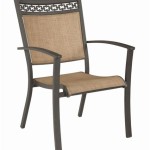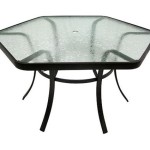Concrete Patio Tile Pavers: A Guide to Essential Considerations
Concrete patio tile pavers are an excellent choice for creating durable and aesthetically pleasing outdoor spaces. Whether you're looking to build a new patio or upgrade an existing one, choosing the right pavers is crucial to ensure a successful project outcome.
Here are some essential aspects to consider when selecting concrete patio tile pavers:
Size and Shape
Pavers come in a wide range of sizes and shapes, from small square tiles to large rectangular slabs. The size and shape you choose will influence the overall look and feel of your patio. Consider the size of your patio and the style you're aiming for when making a decision.
Finish
Concrete pavers can have various finishes, including natural, textured, stamped, or polished. The finish you select will determine the appearance and slip resistance of your patio. Natural finishes provide a more rustic look, while textured finishes offer better traction. Stamped pavers can mimic the appearance of natural stone, and polished pavers create a sleek and modern look.
Thickness
Paver thickness is critical for durability. Pavers for patios typically range in thickness from 1 3/4 inches to 2 3/8 inches. Thicker pavers are more durable and can withstand heavy foot traffic and outdoor elements. However, they may require more sub-base preparation and installation effort.
Color
Concrete pavers come in a wide range of colors, from neutral tones to vibrant hues. Choose a color that complements your home's exterior and the overall ambiance you want to create. Darker colors tend to absorb more heat, while lighter colors reflect heat and stay cooler underfoot.
Installation
Proper installation is essential for the longevity of your patio. Consider the following installation factors:
- Base Preparation: The base layer beneath the pavers should be properly compacted to provide a stable foundation.
- Joint Spacing: Pavers should be installed with appropriate joint spacing to allow for expansion and contraction due to temperature changes.
- Sand Filling: Joints between pavers should be filled with polymeric sand to lock them in place and prevent weeds and insects.
- Sealing: Sealing your pavers can enhance their appearance, protect them from stains, and make cleaning easier.
Maintenance
Concrete patio tile pavers require minimal maintenance to keep them looking their best. Regular sweeping or hosing down with water can remove dirt and debris. Occasional sealing may be necessary to maintain their protective barrier.
Additional Considerations
- Budget: Concrete pavers vary in price depending on size, shape, finish, and thickness. Determine your budget before making a purchase.
- Climate: Consider your local climate when choosing pavers. Frost resistance is essential in areas with freeze-thaw cycles.
- Slip Resistance: Textured or grooved pavers provide better traction, especially in wet conditions.
- Professional Help: If you're unsure about installation or have a complex project, consider hiring a professional contractor.
Conclusion
Choosing the right concrete patio tile pavers is essential for creating a functional, durable, and aesthetically pleasing outdoor space. By considering the factors outlined above, you can select the pavers that best meet your needs and create a patio that will enhance your home's exterior for years to come.

The Benefits Of Concrete Pavers Over Patio Tiles Belgard

Advantages And Disadvantages Of Porcelain Pavers

Concrete Pavers For Patios Driveways More Belgard

Concrete Pavers For Landscaping Buy Peacock

Concrete Silver Paving Primaporcelain
Natural Stone Vs Concrete Paver Patio For Your Pa Home Nature S Accents

12 In L X W 2 H Square Gray Concrete Patio Stone The Pavers Stepping Stones Department At Com

Patio Pavers Paving Stones Unilock

Tile Pavers Vs Poured Concrete Why Are The Best Choice

Nantucket Pavers Patio On A Pallet 18 In X Concrete Gray Traditional Yorkstone Paver 64 Pieces 144 Sq Ft 31241 The Home Depot








